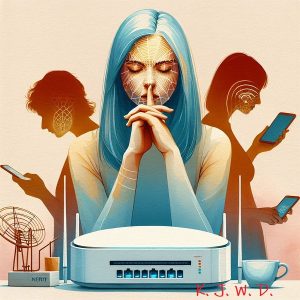An adventures at the Parisian luxury hotel, the Plaza Athenée
Read More
Eastside Goose Chase

It was a warm, sunny Sunday morning in the city and I decided to do some neighborhood chores before the temperature rose.
We fill our prescription meds at the Walgreens pharmacy chain where the pharmacists can pull an RX from any Walgreens branch. That’s come in handy when we’ve been away and have forgotten to pack our meds!
But that morning we were in town and had prescriptions waiting at our local eastside Walgreens on First Ave @ 86th St. I planned to walk the few blocks to pick them up, but by 9:30 it was pretty hot out and seeing a crosstown bus waiting at the stop, I hopped on thankful for the air conditioning.
Walgreens was already open, but I knew on Sundays the pharmacy department doesn’t open until 10:00. A few other customers were already waiting and I joined the line as a pharmacy clerk was explaining that Tony, the regular pharmacist, was taking the day off, and they had to wait for a floater pharmacist to open up. But when by 10:20 no one had arrived, I decided rather than waiting any longer I’d go to the Walgreens on Lexington Ave @ 83rd.
Back on the sidewalk I found it had already gotten much warmer, and so I hopped back on the 86th St. crosstown, got off at Lex, and walked down to 83rd.
At the Lexington Ave Walgreens I asked the pharmacist to pull our prescriptions from the First Ave store. She said they normally would, but their computers had just gone down.
So back out on the street I waited at the nearest Lexington Ave bus stop, now intending to take a bus down to 77th and then walk a few blocks east to the Walgreens on 77th @ Second.
My bus app told me the next Lexington Ave bus was due in 5 minutes, but in fact a bus appeared in less than a minute and I happily got on, not bothering to check the bus number. I asked the driver how close to 77th St she stopped, and she said I was actually on a Fifth Ave bus that had been detoured down Lex and she’d soon be turning west, not heading south. She stopped – certainly in violation of some MTA rule – to let me off.
Then, despite the heat, I began to hoof it down Lex when I decided to stop and call my First Ave Walgreens to see if the floating pharmacist had arrived. She had I was told, and eschewing any more buses, and despite the increasingly oppressive heat, I walked back to First and 86th.
I entered the store – for the second time that morning – expecting to be greeted with a welcome blast of refreshing cold air. But then I saw the sign.
”Walgreens shoppers, please excuse the inconvenience as our air conditioning is out of order.”
I guess there are times when you simply have to grin and take the heat.
– Dana Susan Lehrman
Retrospect – The Altar Boy’s Story
Retrospect – The Altar Boy’s Story
By Kevin J. W. Driscoll (c) 2025
Preface:
Faith is a funny thing. It’s not always about answers—it’s often about the questions that linger, the doubts that echo, the moments that shape who we become. For me, growing up in mid 20th century Boston, faith was woven into the fabric of everyday life. It wasn’t just a Sunday obligation; it was the breath and pulse of the city, the neighborhood, the family.
But faith, like Boston itself, has its hard edges. It comes with rituals that demand solemnity, traditions steeped in reverence—and stories that sometimes leave scars. For me, one of those stories was the 14 Stations of the Cross. What was meant to be a devotional journey became a source of childhood trauma, a collision between innocence and unimaginable suffering.
This isn’t a story about turning away from faith; it’s a story about grappling with it—about questioning what’s been handed down, about finding meaning even in the meanness and messiness, about reclaiming a narrative that shaped me in unexpected ways.
From the dimly lit halls of St. Mary’s Church to the vibrant streets of Boston, this story is my journey. It’s personal. It’s raw. It’s mine.
*
Early in the 1950s, Boston—a city soaked in history, huddled against the biting chill of the Atlantic. This was where I entered the world, a wide-eyed baby boy baptized into Catholicism, anointed with holy water as the priest proclaimed my divine belonging. It was less “angelic choir” and more “squirmy infant”—but hey, even saints start small.
By the time I hit altar boy eligibility age, I’d graduated from cherubic toddler to dutiful young Bostonian, eager to please and blissfully unaware of what awaited me in the dimly lit church halls of my neighborhood. St. Mary’s Church had a timeless quality—part solemn reverence, part imposing guilt—a mix that seemed to seep into the very stones of its foundation.
As an altar boy, I perfected the art of swinging incense like a seasoned pro and mastered the somber expressions reserved for sacred rituals. The church was a world unto itself—a place where time stood still, the pews smelled faintly of candle wax, and the echoes of Latin hymns lingered like ghostly whispers. I found it fascinating, really. That is, until the Stations of the Cross came into my life.
Cue the horror soundtrack.
It started innocently enough, like most good dramas do. A priest—let’s call him Father O’Grady—told us we’d be learning about a tradition that would deepen our connection to our faith. What he didn’t mention was that we’d be diving headfirst into a cascade of misery that still haunts me decades later.
With each station, the story unfolded like a relentless tragedy, moving inexorably from betrayal to brutal suffering. It felt less like a spiritual journey and more like a graphic historical reenactment with an emotional sucker punch at every turn. The vivid descriptions of torment etched themselves onto the walls of my young imagination, leaving scars as permanent as the church’s stained-glass windows.
Back in the Boston area, in the late 1950s, every kid seemed to carry a bit of grit in their spirit. But this? This was on another level. As I sat quietly with my thoughts afterward, staring at the flickering candles near the altar, I remember thinking: “Is this really what they want me to embrace? This isn’t faith; this is brutality, trauma!”
That day shifted something inside me. The church bells rang with the weight of history, but all I could hear was the clang of confusion—between the sacred and the sorrowful, between devotion and despair. I was a Boston boy, born into faith, but now grappling with one of its harshest lessons.
*
The years rolled by in Boston – like the Charles River—steady and inevitable. The trauma of that day stayed with me, lodged somewhere between the hymnal verses and the smell of incense. I continued to serve as an altar boy, moving through the motions with quiet determination, but something had shifted. The Stations of the Cross had flipped a switch I didn’t know existed— I was now possessed of a questioning mind, a restless curiosity.
By the time I reached my teenage years, Boston was alive with change. Rock and roll was breaking into radio playlists, and JFK was rising as our local golden boy turned national hero. But amidst the chaos of the city, I was still tethered to the solemnity of St. Mary’s Church. Every Sunday morning, as I tied on my cassock and adjusted my surplice, I couldn’t shake the feeling that I was performing a role rather than living my faith.
One Sunday, after Mass, I wandered outside to escape the stiff reverence of the church walls. The streets of Boston felt like a different world entirely—the hum of the city, the faint aroma of Italian pastries from the corner bakery, the clatter of trolley cars rattling down cobblestone streets. There, amidst the bustle, I found solace. If faith was supposed to be beautiful, here it was —alive and unpretentious.
And yet, I couldn’t entirely detach myself from the memories of those fourteen haunting stations. The images remained vivid: Jesus falling under the weight of the cross, his mother’s anguished face, the nails, the tomb. They weren’t just symbols anymore—they were stories branded onto my consciousness. I wrestled with questions that had no clear answers: Why glorify suffering? Why center a religion on torment rather than joy? Why, above all, teach this to children?
By the time adulthood arrived, Boston had changed, and so had I. The altar boy had become a man, one shaped by the grittiness of the city and the sharp edges of his past. The Stations of the Cross no longer haunted me, but they never left me either. They were there in my every choice, every moral reckoning, every moment I searched for light in the darkness.
Today, as I sit down to write, I realize that faith isn’t about unquestioning acceptance—it’s about grappling with the messy, imperfect, often heart-wrenching stories that shape us. The Stations of the Cross taught me that. They taught me that even the hardest truths can spark growth, that questioning isn’t a betrayal but a journey. And maybe, just maybe, they taught me that faith itself is less about the altar boy I was and more about the Bostonian I had become.
–30–
Weekly Satirical News: Saturday 4/12/2025



